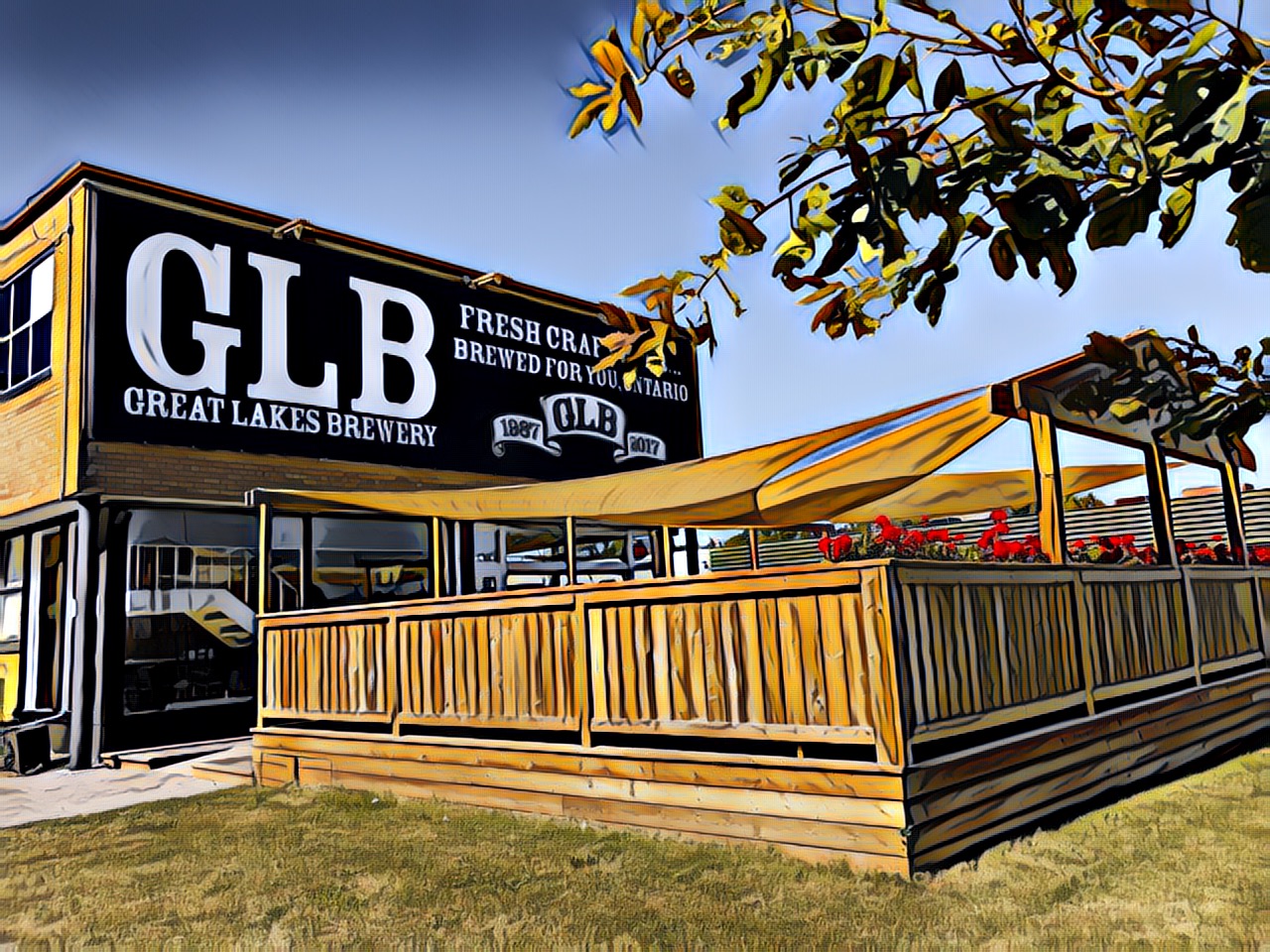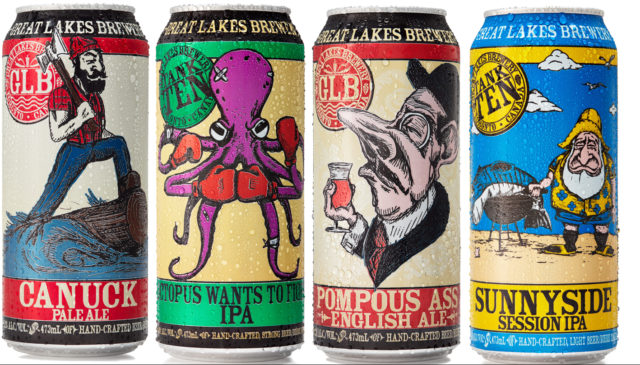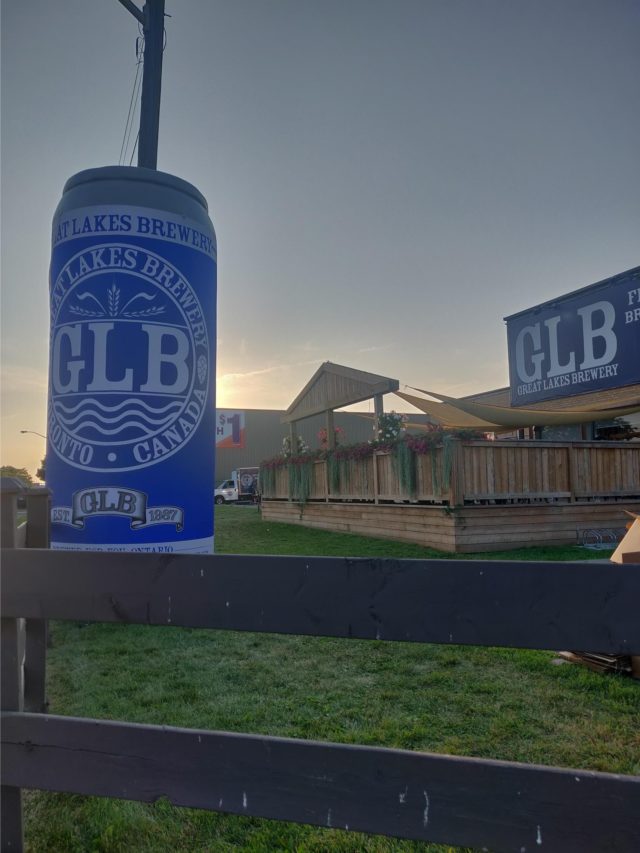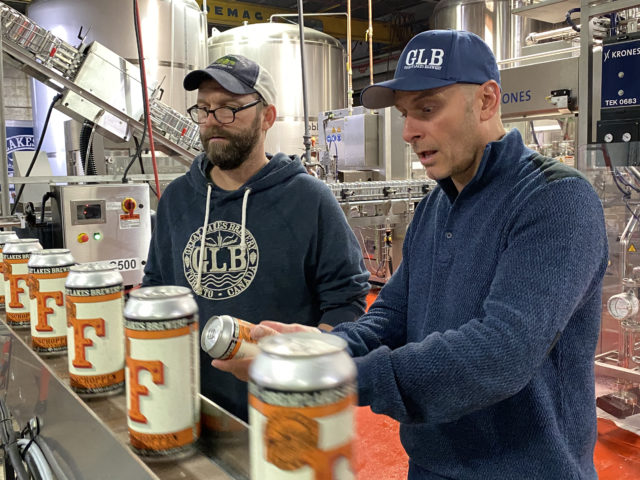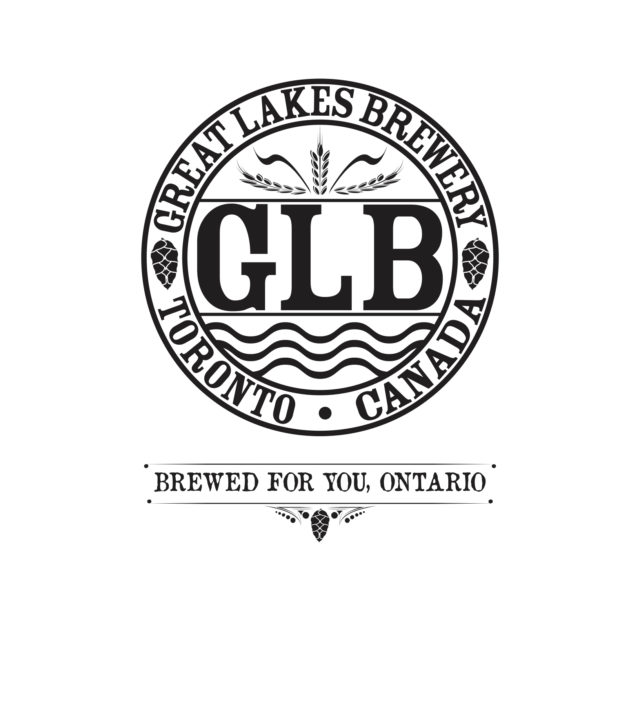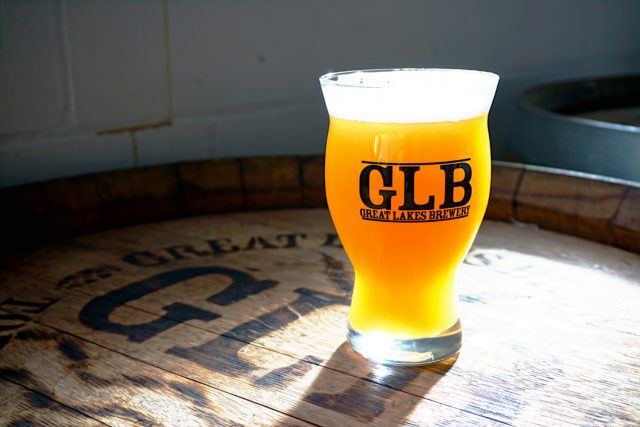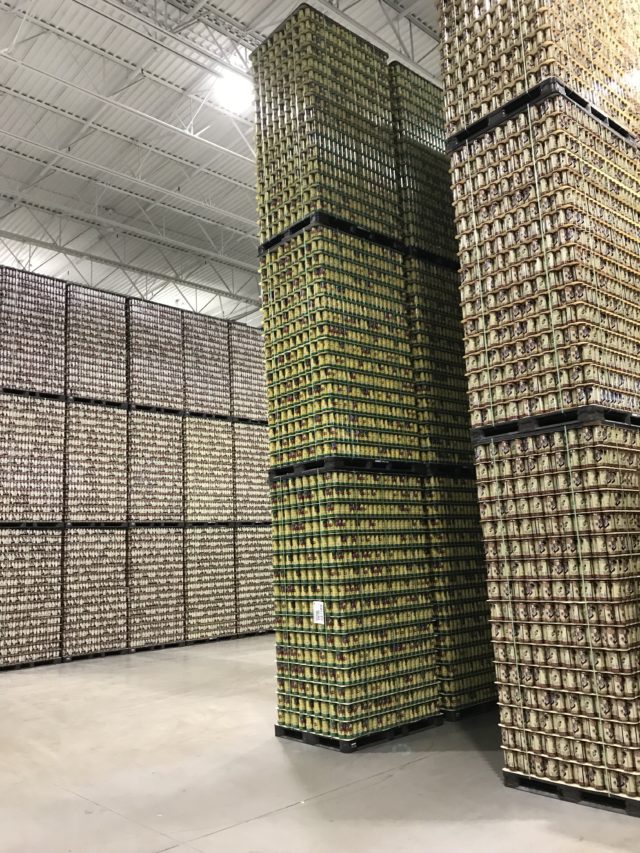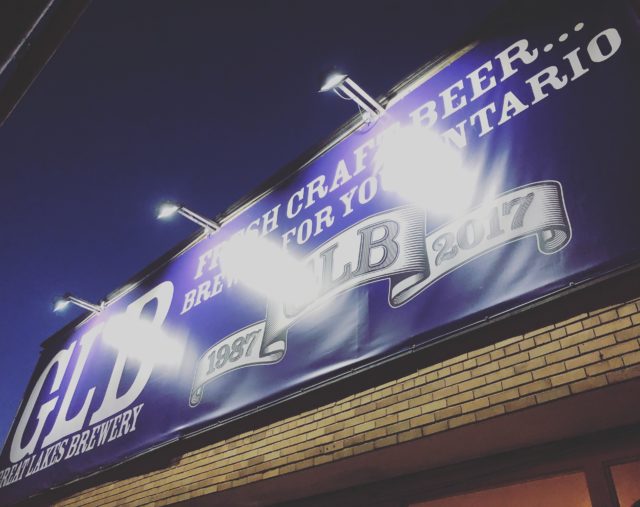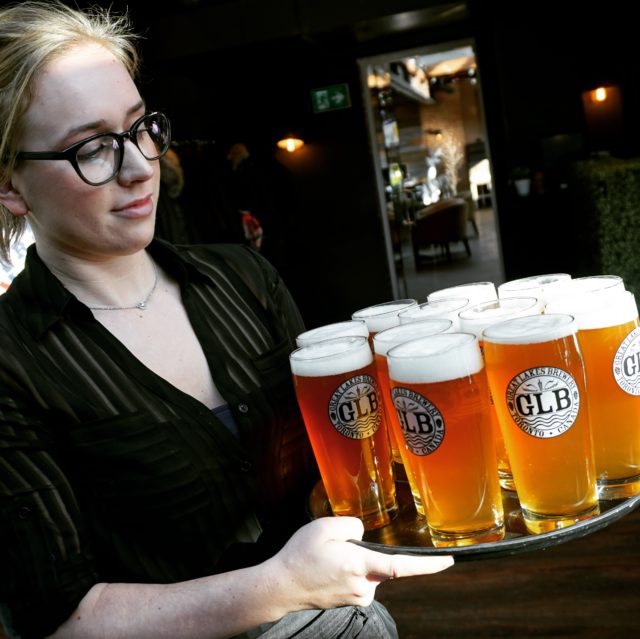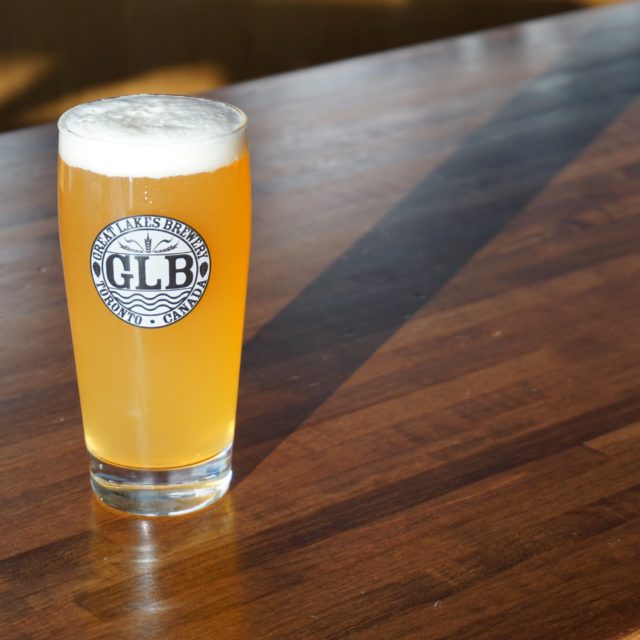-
Headquarters -
30 Queen Elizabeth Blvd Etobicoke, Ontario, M8Z 1L8
-
Year established -
1987
-
NAICS -
312120 - Breweries
-
Major expansions -
1990
-
Employees -
55
-
Exports -
N/A
-
Download -
Great Lakes Brewery
Located in Etobicoke, Ontario, Great Lakes Brewery holds the title of Ontario’s oldest family-owned brewery. Since the brewery was founded in 1987, it has developed multiple well-known flagship brands and established a reputation for innovation.
More than 300 new breweries have opened in Ontario since 2000. Virtually all of these breweries are Canadian-owned and produce premium ‘craft’ beer, and together they employ over 4,600 people. However, fewer than half a dozen of those 300 breweries were operating before 1990. Located in Etobicoke, Great Lakes Brewery is among this select group and holds the title of Ontario’s oldest family-owned brewery.
The original Great Lakes Brewery was founded in Brampton in 1987. When the original owners’ business model proved unsustainable, they sought the help of Peter Bulut Sr., a local construction industry magnate. Bulut Sr. acquired Great Lakes Brewery in 1990 and enlisted family members – including son and current owner Peter Bulut Jr. – to help run the brewery. Shortly after acquiring the Brampton-based brewery, Bulut Sr. moved production to the company’s highly-visible location just north of the Gardiner Expressway in southern Etobicoke and began brewing the award-winning beer for which Great Lakes is known.
The early 1990s was a period of economic uncertainty in southern Ontario. Several breweries that opened during an industry boom in the mid-1980s were forced to close. Great Lakes put reasonably new equipment acquired from recently-defunct breweries to good use and brewed the first batch at the Etobicoke facility in January, 1992. At this time, Great Lakes focused exclusively on brewing draught beer in kegs, primarily serving Toronto-area restaurants and bars. According to Bulut Jr., a large number of Toronto’s restaurants and bars were owned by Italian-, Greek-, and Serbian-Canadians and his father’s ability to speak all three languages played an important role in developing relationships with these customers.
Great Lakes’ production and sales grew in the 1990s, so much so that its larger competitors took notice. Yet this growth did not come without the challenges that small independently-owned manufacturers face when scaling up, including those related to quality control and distribution. To address these challenges, Great Lakes underwent internal reorganization, which involved Peter Bulut Jr. assuming responsibility for brewing operations. Bulut Jr. became Great Lakes’ president and owner following the passing of his father in 2009.
For much of the 1990s and early 2000s, Great Lakes focused on brewing clean and crisp lagers. However, as consumer demand for variety increased, Great Lakes solicited input from employees and, beginning in the mid-2000s, began to brew several of what became flagship brands. At the same time, Great Lakes made substantial investments in brewing and packaging equipment. These investments include new tanks, a centrifuge, a grain mill, and automated bottling and canning lines. Production equipment is sourced primarily from German and Canadian suppliers, including several Ontario-based manufacturers. Some of these investments were supported by contributions from the Ontario Ministry of Agriculture, Food, and Rural Affairs’ (OMAFRA) Growing Forward programs, which were designed to improve the competitiveness and innovative capacity of Ontario’s agri-food sector.
Today, Great Lakes employs more than 55 people, 10 of whom were hired in the past year. Approximately one-third of Great Lakes’ employees are directly involved in brewery operations, including trained brewers and other skilled tradespeople. The remainder focus on other aspects of the business, including administration, sales and marketing, and events. The company has been particularly successful recruiting graduates of Niagara College’s venerated Brewmaster and Brewery Operations program. Great Lakes credits its ability to attract these sought-after graduates to close relationships with Niagara College faculty and the company’s reputation as an established and innovative brewery. The company has, however, recently faced challenges recruiting seasonal sales and event staff. This is partly due to the rapid growth of the craft brewing industry in the GTA and the brewery’s location outside the downtown core.
Despite these challenges, which are common to manufacturers across the province, Great Lakes’ employee retention is strong. This is the result of regular investments in all aspects of the business. It is also the result of innovative employee engagement strategies. One example of this strategy is the company’s recent ‘Family Brew-Off’, where small teams of staff from all segments of the brewery entered a competition that required them to develop, brew, and name a new beer. In doing so, staff who spend much of their time focusing on one aspect of the business gained a better understanding of other elements of the business. Great Lakes served these beers to taproom customers, gaining insight into their preferences for new styles and flavours (As luck would have it, Bulut Jr.’s team took the top prize).
Great Lakes is a founding member of the Ontario Craft Brewers (OCB), an industry association that represents the interests of the province’s craft brewers. The efforts of the OCB – a Trillium Network for Advanced Manufacturing partner organization – were instrumental in helping to restructure certain elements of the governance of Ontario’s brewing industry in the mid-2000s. This restructuring, which included changes to excise taxes, tax credits for small brewers, and policies to support capital investments, helped create a foundation upon which the industry has grown. According to Bulut Jr. and other Great Lakes employees, the OCB should be credited for it’s lobbying efforts and for fostering collaboration and cooperation among a growing core of craft brewers in Ontario. These relationships were less common prior to the OCB’s founding in 2003 and provide a forum through which craft brewers exchange ideas and experiences in order to support the growth and competitiveness of the industry.
Great Lakes’ ownership and staff are optimistic about the future of their brewery and of the craft brewing industry in Ontario. They believe the combination of recent capital investments, skilled personnel, creative marketing and packaging, well-known flagship brands, and ability to develop innovative seasonal beers that meet customers’ demands for something new puts them in a position to remain at the forefront of Ontario’s craft brewing industry.
For more information about Great Lakes Brewery, visit their website.
Published: June 11, 2020
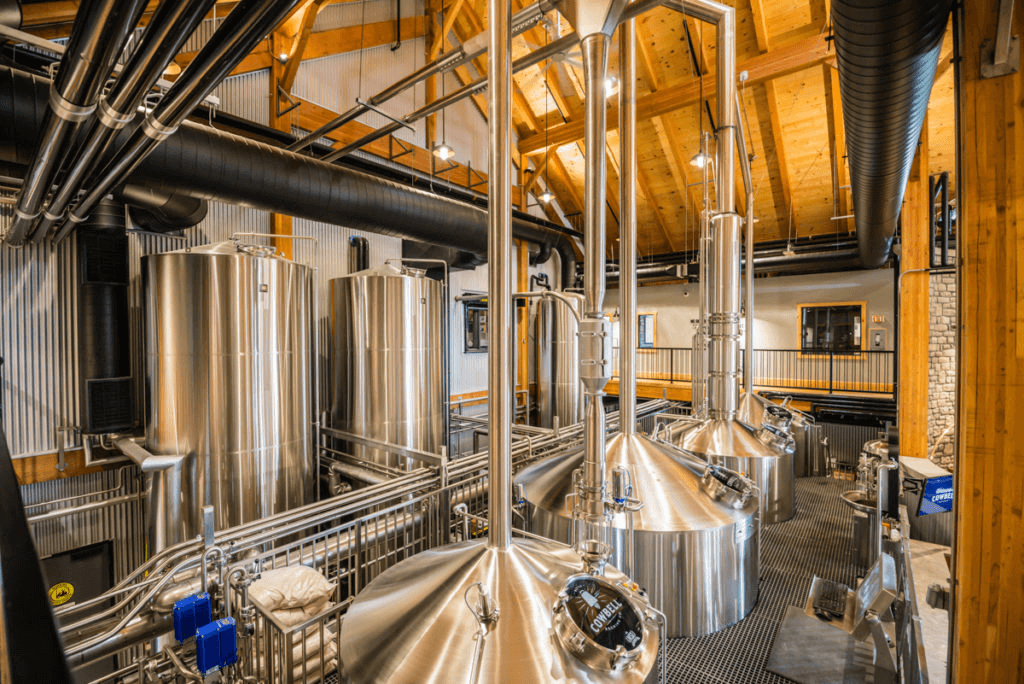
Cowbell Brewing
Cowbell is a destination craft brewery, which features a full restaurant, several event spaces, and the Cowbell General Store. It is the first carbon-neutral brewery in North America and the first closed-loop brewery in the world.
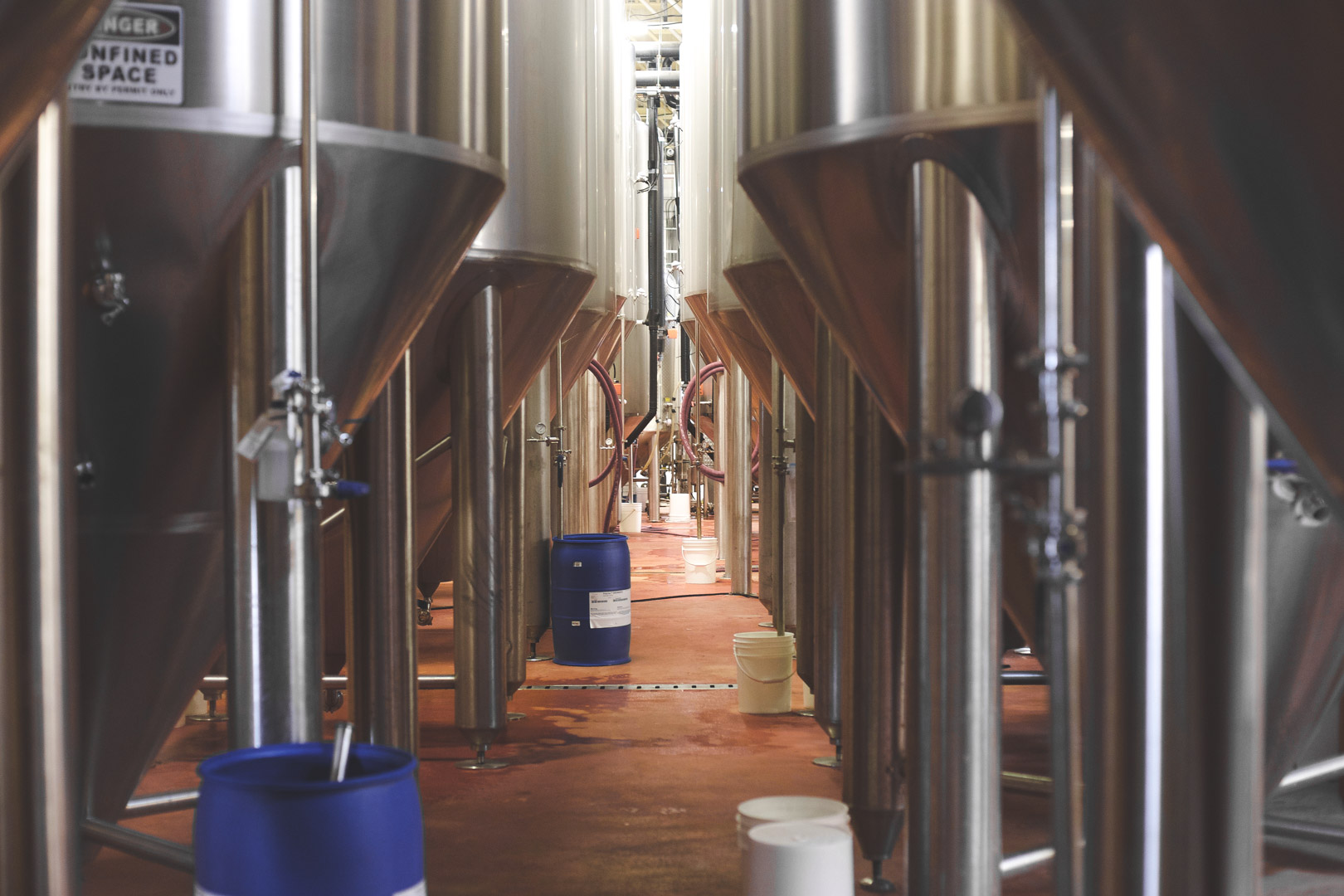
Muskoka Brewery
Founded in 1996 in the heart of Ontario’s cottage country, Muskoka Brewery is one of the largest and most well-established craft brewers in Ontario, exemplifying the important relationships craft brewers have with local communities.
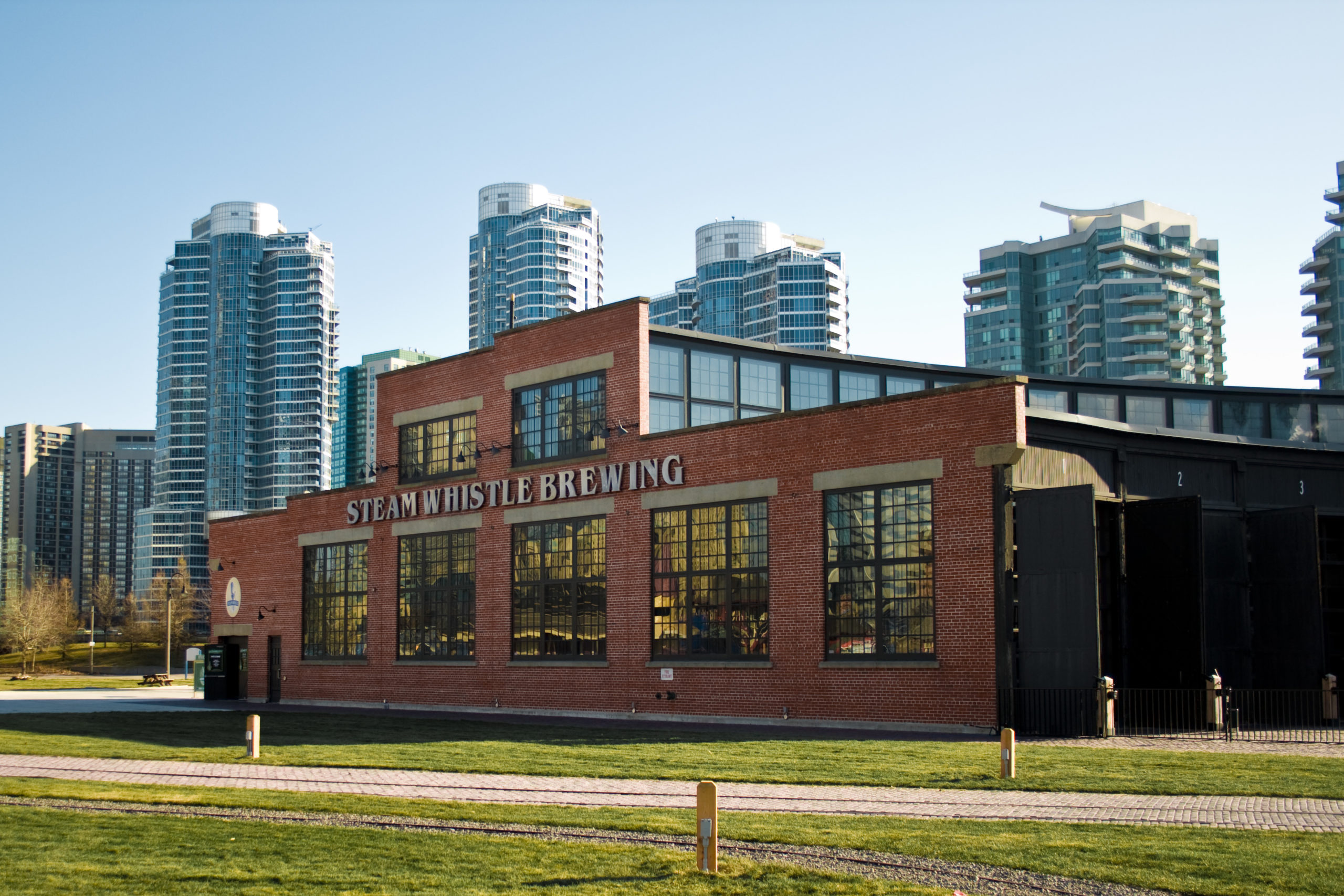
Steam Whistle Brewing
Over the past two decades, Steam Whistle Brewing has grown from a dream hatched by the fireside into one of Canada’s largest independent breweries.

Hiram Walker & Sons
Hiram Walker & Sons is Ontario’s sole “grain-to-glass” distillery. The company produces Vodka, Rum and Canadian Whisky.
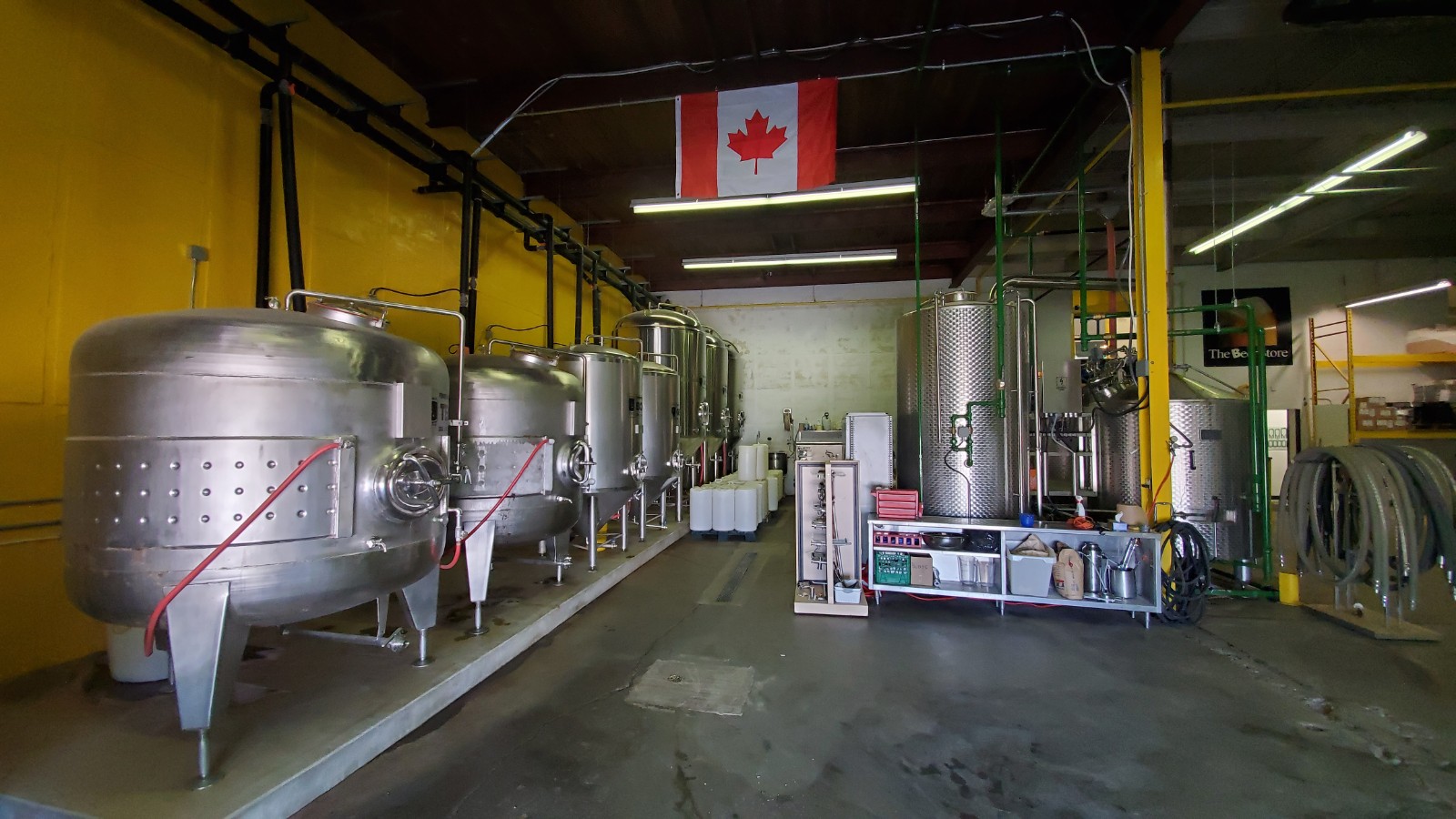
All or Nothing Brewhouse
An important member of the business community in Oshawa, Ontario, All or Nothing Brewhouse retooled their distilling equipment to meet the anticipated local demand for hand sanitizer as a result of COVID-19.
